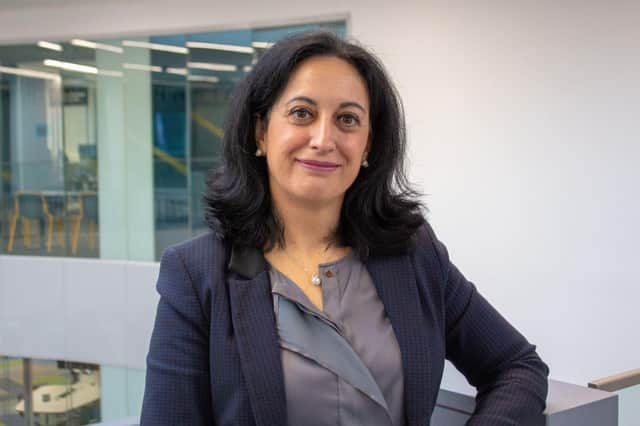Heriot-Watt and Strathclyde unis awarded share of £1.2m pot to accelerate industrial decarbonisation


Heriot-Watt and Strathclyde universities are among the list of higher education institutions whose projects have been awarded a collective £1.2 million by the Industrial Decarbonisation Research and Innovation Centre (Idric) to help foster a major new wave of relevantresearch.
Backed by UK Research and Innovation’s (UKRI) Industrial Decarbonisation Challenge, Idric has made the awards as part of its rolling Flexible Funding Programme, and the newly announced boost, the first of two phases of such funding, has been developed to be responsive to emerging industry needs and help realise a low-risk but rapidly achievable impact.
Advertisement
Hide AdAdvertisement
Hide AdIt is pointed out that the research projects that have received funding each support the UK’s bid to reduce industrial emissions by at least two-thirds by 2035, and concentrate on everything from examining approaches to carbon capture and storage in different industries to exploring the potential for green hydrogen production and transforming waste carbon dioxide into valuable chemicals.
Two Heriot-Watt initiatives have been awarded funding. One, led by Professor Susana Garcia, is focused on an augmented engineering digital tools for cluster-based carbon capture, use, and storage design in the project area of using artificial intelligence to design the most efficient way for carbon capture in industrial clusters. The other is titled Towards A Sustainable Phase Change Material, led by Dr Jeannie Ziang Yie Tan, with the project area creating sustainable materials that can store and release heat.
Strathclyde’s project area is capturing carbon dioxide from industrial processes, specifically looking at the wider economy and competitiveness impacts of employing pre- and post-combustion carbon capture in UK industries, led by Dr Antonios Katris. The universities to receive funding are Durham, Cardiff, South Wales, Sussex, Oxford, Lincoln, Liverpool, Sheffield, and Imperial College London.
Idric says that since its work got under way in 2021, it has awarded £16.8m to more than 60 diverse research projects across the UK, and collaborated with in excess of 200 partners and stakeholders including industry, community representatives, and policymakers to address urgent innovation needs. Idric director Professor Mercedes Maroto-Valer said: "Idric’s programme has demonstrated that we have the tools to be responsive to industry needs and become an engine of green growth. This new round of flex funding will help develop practices that significantly aid the decarbonisation of industry.
"We have successfully developed an influential and impactful network at a critical time, bringing academics and industries together across UK industrial clusters. This is an important step towards achieving net zero for the UK industry in an integrated and innovative manner.
“Idric’s progress over its two years has been wide-ranging. By integrating findings from across Idric’s research portfolio, we are directly informing plans for decarbonisation in some of the UK’s largest industrial clusters and generating collaboration between those clusters and academic research teams local to them.”
Bryony Livesey, director of the Industrial Decarbonisation Challenge at UKRI, also commented: “The new round of funding by Idric aligns with the UK Government’s commitment to support and drive net-zero goals. The quality of projects is a testament to Idric’s ability to collaborate with high-quality researchers to find meaningful solutions to decarbonising industries in the UK.”
Comments
Want to join the conversation? Please or to comment on this article.